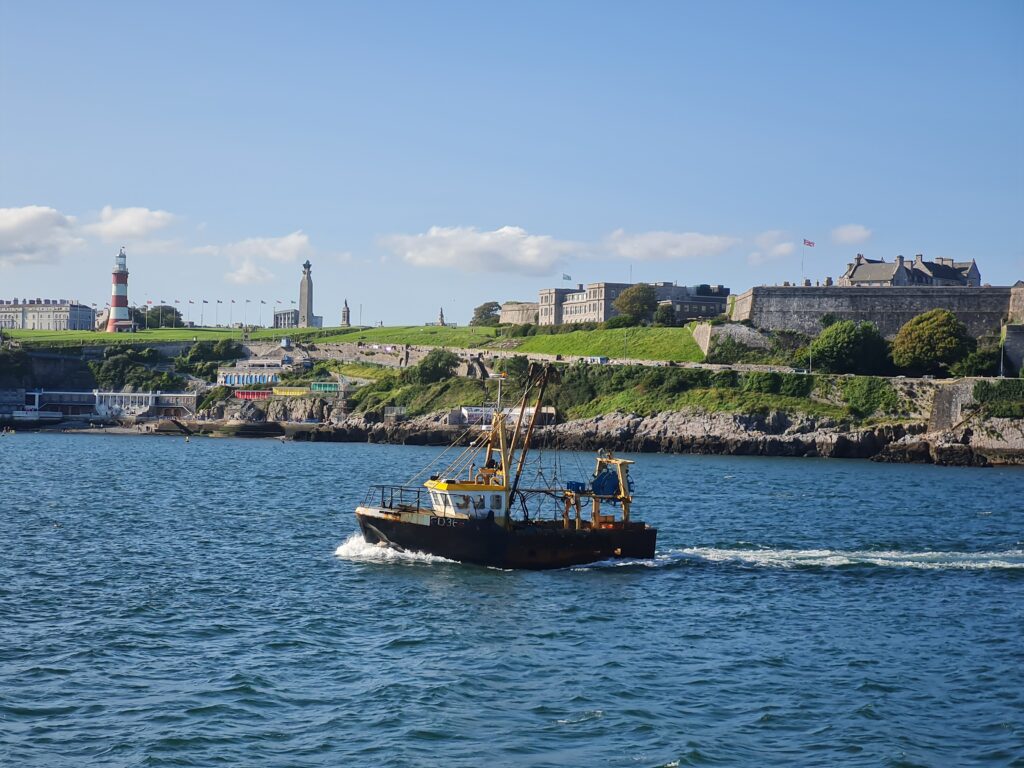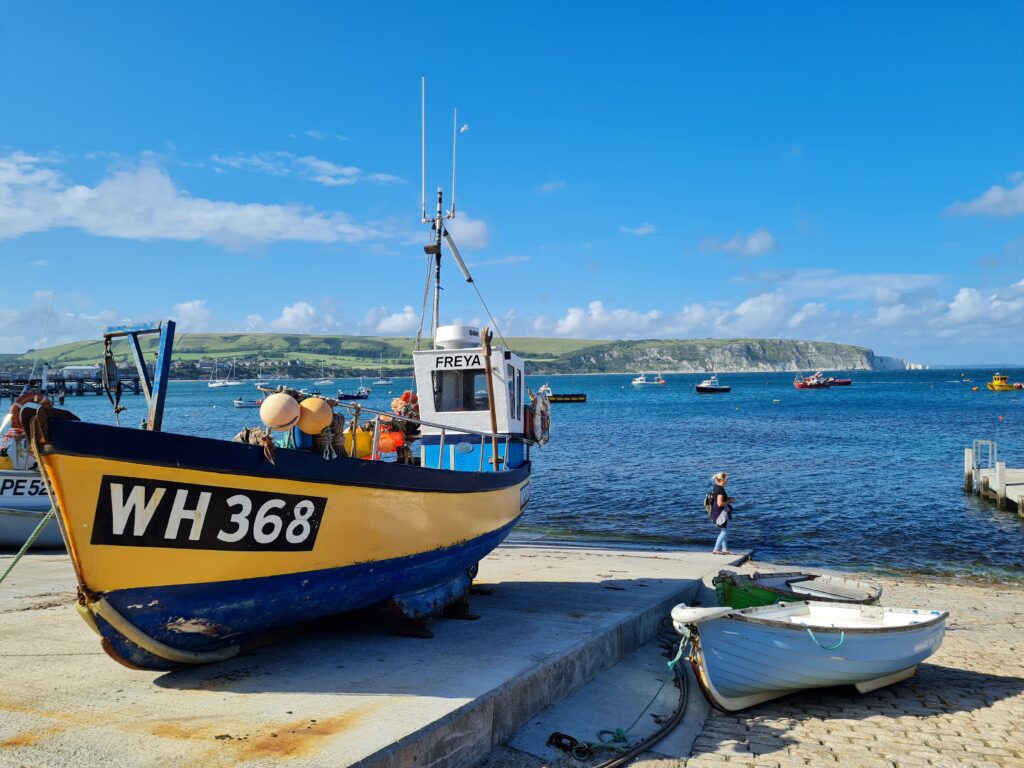A major new study co-authored by the Marine Biological Association (MBA) has issued a stark warning that the UK is at serious risk of losing the wide-reaching benefits of its sustainable fisheries unless urgent action is taken.

The paper, Recognising and Protecting the National Benefit of Sustainable Fisheries in the UK, highlights the deepening decline of the UK’s fishing fleet—especially in small-scale coastal communities—and outlines an urgent opportunity for policymakers to reverse this trend for the good of the economy, environment, and society.
Published on 10 April in the highly respected international journal Fish and Fisheries, the paper brings together 19 co-authors including marine scientists, fisheries experts, community advocates, environmental groups and policymakers, including significant contributions from a researcher at the MBA, who emphasise the vital role that sustainable fisheries play in maintaining marine biodiversity, supporting livelihoods, and preserving the UK’s coastal heritage.
“This is about much more than fish – it’s about people, places, and policies,” said Dr Bryce Stewart, marine ecologist and MBA Senior Research Fellow. “The loss of local fisheries means the erosion of coastal identities, jobs, food security, and marine stewardship. But this is reversible, and the Fisheries Act gives us the tools if we choose to use them.”

A national asset at risk
The paper presents eight distinct national benefits provided by sustainable fisheries, from food security and coastal employment to environmental stewardship and cultural heritage. The research introduces a new framework to help government bodies operationalise the ‘national benefit’ objective of the UK’s 2020 Fisheries Act.
However, long-term analysis of UK fisheries data conducted in the study shows alarming trends: a steep decline in fishing vessels, particularly small boats under 10 metres in length, and a growing imbalance that disproportionately affects rural and economically vulnerable coastal regions.
“The greying of the fleet is a serious warning sign,” added Dr Stewart. “We’re not just losing boats—we’re losing generational knowledge, resilience, and the very social fabric that connects many of our communities to the sea.”
The Marine Biological Association: Driving research to policy
The MBA, one of the UK’s oldest and most respected marine science institutions, played a leading role in this interdisciplinary research. Through its science and policy work, the Association continues to bring critical evidence to the attention of government and public audiences alike.
Lead author of the paper, Dr Sarah Coulthard from Newcastle University, said: “This new analysis confirms that which fishermen know only too well, that the fishing fleet is in decline across the whole UK. However, it also highlights that the decline is being unevenly felt with regional and sector disparity.
“New conversations are required now to discuss retaining a diverse and resilient fishing fleet by securing our inshore and small-scale fisheries and the wide distribution of benefits they deliver across our coastline”.

A turning point for UK fisheries policy
With the Fisheries Act (2020) legally committing the UK to deliver economic, social, and environmental benefits through sustainable fisheries, the study urges policymakers to adopt a more inclusive definition of sustainability—one that considers the people behind the practice, not simply the fish stocks.
The paper argues that by protecting and promoting sustainable fishing practices across all scales—particularly in small, community-based operations—the UK can meet its commitments to biodiversity, levelling-up, food security and rural resilience.
The authors propose a number of policy recommendations, including:
- Reframing sustainability to equally weigh environmental, economic, and social outcomes
- Empowering coastal communities through co-management and knowledge-sharing with local fishers
- Recognising public goods derived from healthy fisheries and applying concepts such as ‘public money for public goods’ to marine sectors
- Improving data collection and visibility of small-scale fisheries to better inform national strategies.
Window of opportunity
The report presents both a warning and an invitation—to act now before the opportunity slips away. With the UK’s departure from the EU offering more autonomy over fisheries policy than ever before, this is the time to influence change.
“If we want future generations to enjoy healthy seas, sustainable seafood, and thriving coastal towns, we must take the decline in the under 10 metre fishing fleet seriously,” said co-author Sam Fanshawe from the Blue Marine Foundation. “Policymakers have a real chance to steer fisheries policy and investment towards supporting local fishing communities and small-scale fishermen, who know firsthand the value of looking after inshore fishing grounds and stocks for their own livelihoods, as well as the health of our seas.”
Access the full paper here: Recognising and Protecting the National Benefit of Sustainable Fisheries in the UK.
More information about the work of the consortium behind this new paper can be found here.
Discover more on Dr Bryce Stewart’s research here!
Follow Bryce on Social Media: